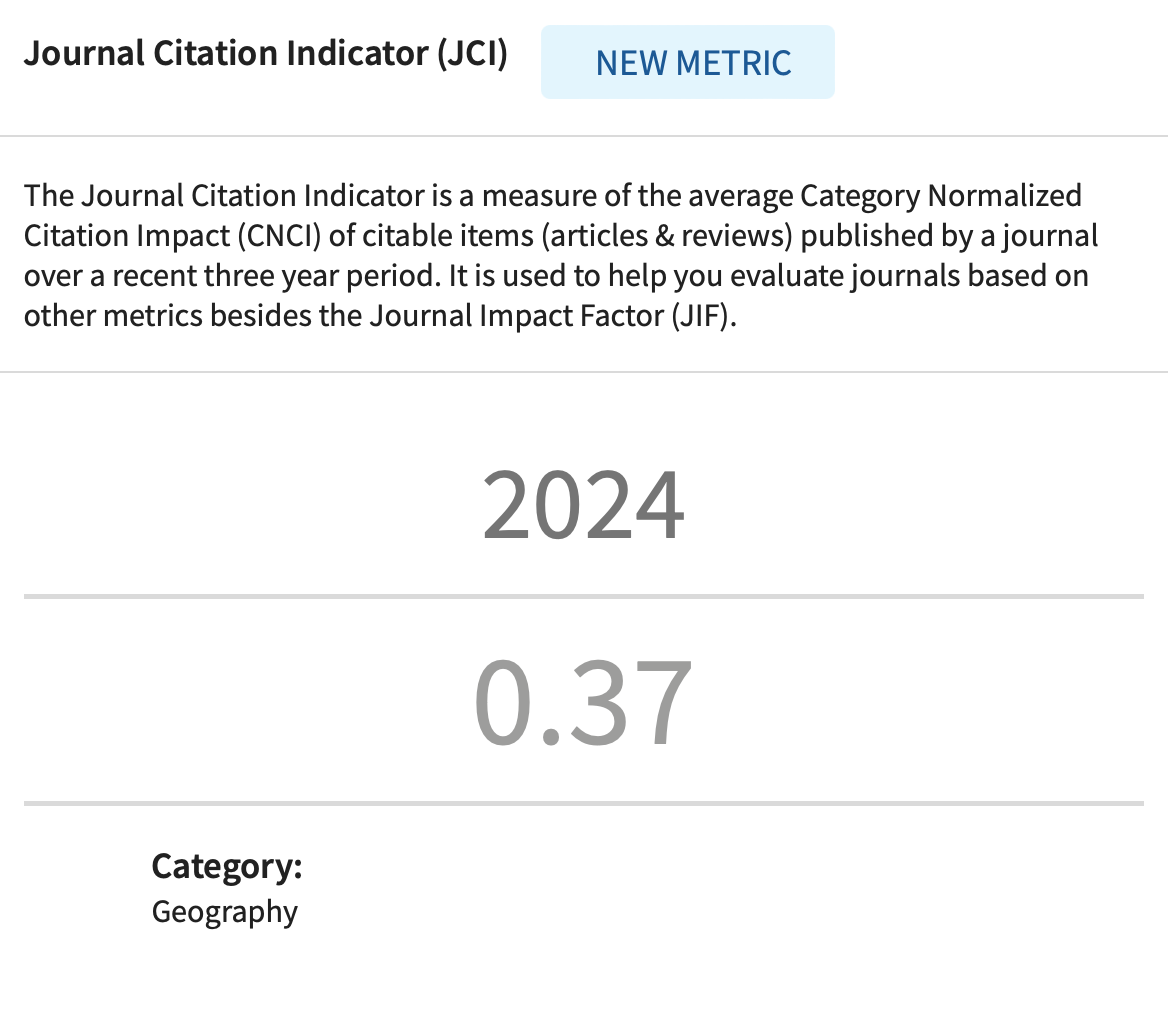STAKEHOLDERS’ EXPERIENCES WITH PARTICIPATIVE APPROACH IN TOURISM
DOI:
https://doi.org/10.2298/IJGI2301093TKeywords:
bottom-up approach, barriers and enablers, tourism development, focus groupAbstract
Tourism stakeholders’ participation is mostly needed for planning purposes because they have better insights regarding various issues present on a local level. A participative approach enables tourism stakeholders to influence and control, to a certain degree, the development of tourism in their community. However, there is a lack of research on stakeholders’ understanding of a participative approach that has been identified. This study uses a qualitative research approach where a focus group (FG) with key stakeholders was employed to examine the mechanism behind the participative approach. Namely, this paper presents the findings about the local stakeholders’ experiences with a participative approach and their opinions regarding how to foster this type of initiatives in tourism settings. Data presented in this paper were collected during a discussion with an FG and processed using thematic analysis. The thoughts and opinions of stakeholders were analyzed by taking into consideration barriers and enablers related to the implementation of a participative approach. The main focus was placed on bottom-up initiatives, but other types were included as well. Identified barriers and enablers were categorized into four themes: approach necessity, appropriate stakeholders selection, correct application of the approach, and stakeholders’ motivation.
Article metrics
References
Ali, F., Hussain, K., Nair, V., & Nair, P. K. (2017). Stakeholders’ perceptions & attitudes towards tourism development in a mature destination. Tourism: An International Interdisciplinary Journal, 65(2), 173–186. https://hrcak.srce.hr/183651
Boukas, N., & Ziakas, V. (2016). Tourism policy and residents’ well-being in Cyprus: Opportunities and challenges for developing an inside-out destination management approach. Journal of Destination Marketing & Management, 5(1), 44–54. https://doi.org/10.1016/j.jdmm.2015.12.004
Bramwell, B. (2010). Participative Planning and Governance for Sustainable Tourism. Tourism Recreation Research, 35(3), 239–249. https://doi.org/10.1080/02508281.2010.11081640
Braun, V., & Clarke, V. (2006). Using thematic analysis in psychology. Qualitative Research in Psychology 3(2), 77–101. http://dx.doi.org/10.1191/1478088706qp063oa
Byrd, E. T. (2007). Stakeholders in sustainable tourism development and their roles: applying stakeholder theory to sustainable tourism development. Tourism Review, 62(2), 6–13. https://doi.org/10.1108/16605370780000309
Ciro, A., Toska, M., & Nientied, P. (2019). Social Innovation and Sustainable Economic Development: Participatory Tourism Destination Management. In M. Finka, M. Jaššo, & M. Husár (Eds.), The Role of Public Sector in Local Economic and Territorial Development: Innovation in Central, Eastern and South Eastern Europe (pp. 173–192). https://doi.org/10.1007/978-3-319-93575-1_10
Clarke, V. (2021, November 30). Thematic Analysis: Part 3: Six phases of reflexive thematic analysis [Video]. YouTube. https://www.youtube.com/watch?v=BhL113ye9Ss
Dabphet, S. (2013). The key stakeholders in the implementation of sustainable tourism development in two rural towns of Thailand. International Journal of Business Tourism and Applied Sciences. http://www.ijbts-journal.com/images/main_1366796758/0029-Siripen.pdf
Del Chiappa, G., Atzeni, M., & Ghasemi, V. (2018). Community-based collaborative tourism planning in islands: A cluster analysis in the context of Costa Smeralda. Journal of Destination Marketing & Management, 8, 41–48. https://doi.org/10.1016/j.jdmm.2016.10.005
Gori, E., Fissi, S., & Romolini, A. (2021). A collaborative approach in tourism planning: The case of Tuscany region. European Journal of Tourism Research, 29, Article 2907. https://doi.org/10.54055/ejtr.v29i.2426
Gutierrez, E. L. M. (2019). Participation in tourism: Cases on Community-Based Tourism (CBT) in the Philippines. Ritsumeikan Journal of Asia Pacific Studies, 37, 23–36. http://en.apu.ac.jp/rcaps/uploads/fckeditor/publications/journal/2_RJAPS37_Gutierrez.pdf
Hartley, N., & Wood, C. (2005). Public participation in environmental impact assessment—implementing the Aarhus Convention. Environmental Impact Assessment Review, 25(4), 319–340. https://doi.org/10.1016/j.eiar.2004.12.002
Hatipoglu, B., Alvarez, M. D., & Ertuna, B. (2016). Barriers to stakeholder involvement in the planning of sustainable tourism: the case of the Thrace region in Turkey. Journal of Cleaner Production, 111, Part B, 306–317. https://doi.org/10.1016/j.jclepro.2014.11.059
Jamal, T., & Stronza, A. (2009). Collaboration theory and tourism practice in protected areas: stakeholders, structuring and sustainability. Journal of Sustainable Tourism, 17(2), 169–189. https://doi.org/10.1080/09669580802495741
Jamhawi, M. M., & Hajahjah, Z. A. (2017). A bottom-up approach for cultural tourism management in the old city of As-Salt, Jordan. Journal of Cultural Heritage Management and Sustainable Development, 7(1), 91–106. https://doi.org/10.1108/JCHMSD-07-2015-0027
Kamarudin, K. H. (2013, February 4–5). Local Stakeholders Participation In Developing Sustainable Community Based Rural Tourism (CBRT): The Case Of Three Villages In The East Coast Of Malaysia, George Town, Penang, Malaysia. http://eprints.usm.my/34959/1/HBP4.pdf
Kauppila, P., Saarinen, J., & Leinonen, R. (2009). Sustainable Tourism Planning and Regional Development in Peripheries: A Nordic View. Scandinavian Journal of Hospitality and Tourism, 9(4), 424–435. https://doi.org/10.1080/15022250903175274
Krce Miočić, B., Razović, M., & Klarin, T. (2016). Management of sustainable tourism destination through stakeholder cooperation. Management: Journal of Contemporary Management Issues, 21(2), 99–120. https://hrcak.srce.hr/171236
Lindström, K. N., & Larson, M. (2016). Community-based tourism in practice: evidence from three coastal communities in Bohuslän, Sweden. Bulletin of Geography. Socio–economic Series, 33, 71–78. http://dx.doi.org/10.1515/bog-2016-0025
Martins, M. (2018). Tourism Planning and Tourismphobia: An Analysis of the Strategic Tourism Plan of Barcelona 2010-2015. Journal of Tourism, Heritage & Services Marketing, 4(1), 3–7. http://dx.doi.org/10.5281/zenodo.1247519
Marzuki, A., Hay, I., & James, J. (2012). Public participation shortcomings in tourism planning: The case of the Langkawi Islands, Malaysia. Journal of Sustainable Tourism, 20(4), 585–602. https://doi.org/10.1080/09669582.2011.638384
Murphy, P. E. (1983). Tourism as a community industry—an ecological model of tourism development. Tourism Management, 4(3), 180–193. https://doi.org/10.1016/0261-5177(83)90062-6
Murphy, P. E. (1985). Tourism: A Community Approach (RLE Tourism). https://doi.org/10.4324/9780203068533
Murphy, P. E. (1988). Community driven tourism planning. Tourism Management, 9(2), 96–104. https://doi.org/10.1016/0261-5177(88)90019-2
Müller, S., Huck, L., & Markova, J. (2020). Sustainable Community-Based Tourism in Cambodia and Tourists’ Willingness to Pay. Advances in Southeast Asian Studies, 13(1), 81–101. https://doi.org/10.14764/10.ASEAS-0030
Okazaki, E. (2008). A Community-Based Tourism Model: Its Conception and Use. Journal of Sustainable Tourism, 16(5), 511–529. https://doi.org/10.1080/09669580802159594
Özgit, H., & Zhandildina, D. (2021). Investigating stakeholder awareness of the sustainable development goals and tourism stakeholder collaboration: the case of North Cyprus. Worldwide Hospitality and Tourism Themes, 13(4), 498–509. https://doi.org/10.1108/WHATT-02-2021-0027
Reggers, A., Grabowski, S., Wearing, S. L., Chatterton, P., & Schweinsberg, S. (2016). Exploring outcomes of community-based tourism on the Kokoda Track, Papua New Guinea: A longitudinal study of Participatory Rural Appraisal techniques. Journal of Sustainable Tourism, 24(8–9), 1139–1155. https://doi.org/10.1080/09669582.2016.1145229
Rozite, M., van der Steina, A., & Kalniņa, I. (2020, May 22–23). Tourism policy in Latvia - From a top-down to a collaborative approach. 14th International Scientific Conference “Society. Integration. Education", Rezekne, Latvia. https://doi.org/10.17770/sie2020vol6.5034
Ruhanen, L. (2013). Local government: facilitator or inhibitor of sustainable tourism development? Journal of Sustainable Tourism, 21(1), 80–98. https://doi.org/10.1080/09669582.2012.680463
Sakata, H., & Prideaux, B. (2013). An alternative approach to community-based ecotourism: a bottom-up locally initiated non-monetised project in Papua New Guinea. Journal of Sustainable Tourism, 21(6), 880–899. https://doi.org/10.1080/09669582.2012.756493
Sánchez, M. S.-O., Castro-Serrano, J., & Robina-Ramírez, R. (2021). Stakeholders’ Participation in Sustainable Tourism Planning for a Rural Region: Extremadura Case Study (Spain). Land, 10(6), Article 553. https://doi.org/10.3390/land10060553
Seyhan, B., & Russo, A. P. (2020). Top-Down Versus Bottom-Up Approaches in Heritage Tourism Management and Planning: An Analysis of Contrasting Models Based on Two Turkish Case Studies. In I. O. Coşkun, N. Othman, M. Aslam, & A. Lew (Eds.), Travel and Tourism: Sustainability, Economics, and Management Issues (pp. 267–280). Springer
Shafieisabet, N., & Haratifard, S. (2020). The empowerment of local tourism stakeholders and their perceived environmental effects for participation in sustainable development of tourism. Journal of Hospitality and Tourism Management, 45, 486–498. https://doi.org/10.1016/j.jhtm.2020.10.007
Theerapappisit, P. (2012). The Bottom-Up Approach of Community-Based Ethnic Tourism: A Case Study in Chiang Rai. In M. Kasimoglu & H. Aydin (Eds.), Strategies for Tourism Industry - Micro and Macro Perspectives (pp. 267–294). https://doi.org/10.5772/37137
Tosun, C. (2000). Limits to community participation in the tourism development process in developing countries. Tourism Management, 21(6), 613–633. https://doi.org/10.1016/S0261-5177(00)00009-1
Tosun, C. (2006). Expected nature of community participation in tourism development. Tourism Management, 27(3), 493–504. https://doi.org/10.1016/j.tourman.2004.12.004
Ullah, Z., Khan, M. I., Iqbal, J., & Ul Haq, Z. (2018). Stakeholders’ Identification for Collaborative Tourism Planning In Coastal Areas of Sindh Province, Pakistan. Abasyn Journal of Social Sciences – Special Issue: IGCETMA 2018, 140–151. http://ajss.abasyn.edu.pk/sparticle?articleID=146
van Breugel, L. (2013). Community-based tourism: Local participation and perceived impacts - A comparative study between two communities in Thailand (Master’s thesis). Retrieved from http://tourismlibrary.tat.or.th/medias/RU0232/RU0232_fulltext.pdf
Wan, Y. K. P. (2013). A comparison of the governance of tourism planning in the two Special Administrative Regions (SARs) of China - Hong Kong and Macao. Tourism Management, 36, 164–177. https://doi.org/10.1016/j.tourman.2012.12.005
Wanner, A., & Pröbstl-Haider, U. (2019). Barriers to Stakeholder Involvement in Sustainable Rural Tourism Development—Experiences from Southeast Europe. Sustainability, 11(12), Article 3372. https://doi.org/10.3390/su11123372
Yuksel, F., Bramwell, B., & Yuksel, A. (1999). Stakeholder interviews and tourism planning at Pamukkale, Turkey. Tourism Management, 20(3), 351–360. https://doi.org/10.1016/S0261-5177(98)00117-4
Downloads
Published
How to Cite
Issue
Section
License
Copyright (c) 2023 Journal of the Geographical Institute “Jovan Cvijić” SASA

This work is licensed under a Creative Commons Attribution-NonCommercial-NoDerivatives 4.0 International License.











